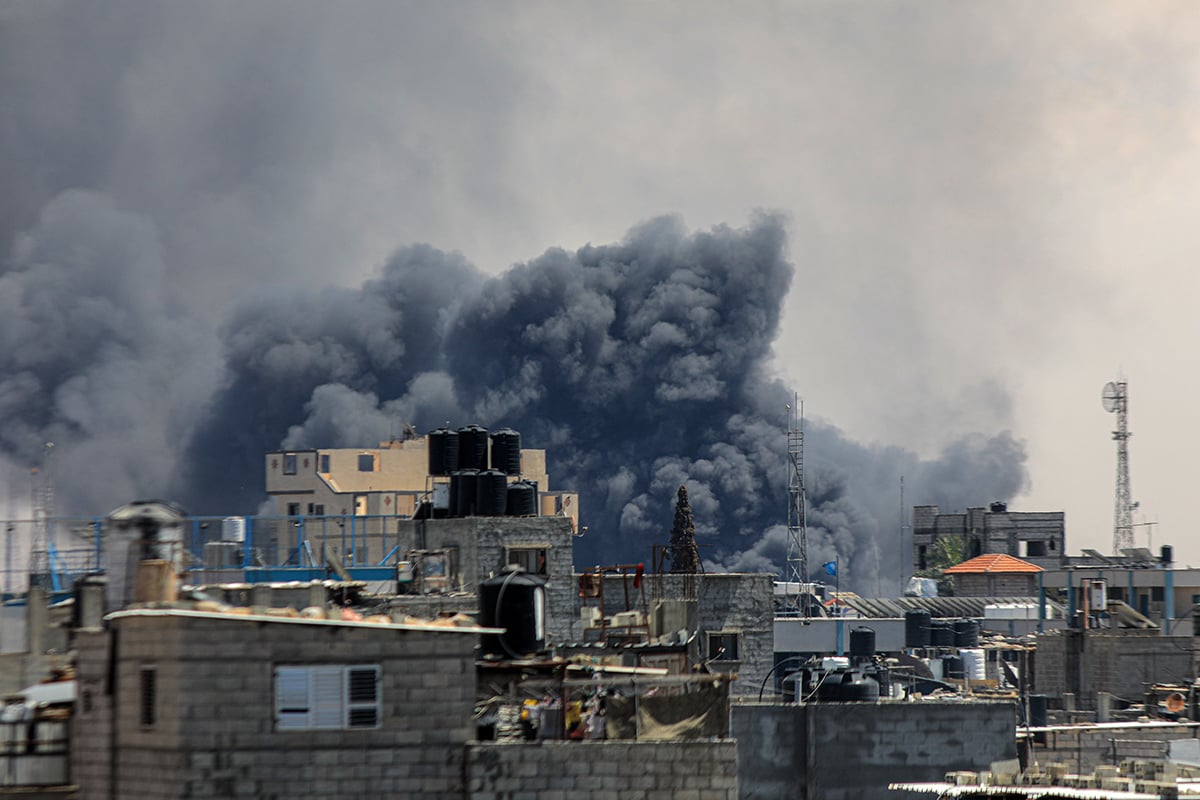
Causes of the outbreak of the Hamas - Israel conflict
On October 7, 2023, Hamas launched a full-scale attack on Israel by land, air and sea. On October 22, 2023, at a meeting of the United Nations Security Council, UN Secretary-General Antonio Guterres condemned Hamas's actions, but said that Hamas's attack on Israel was not accidental because the Palestinian people have been occupied by Israel for 56 years.
In fact, the United Nations resolutions, especially Resolution 242 (1967), Resolution 338 (1973) and Resolution 2334 (2016) of the Security Council, which are binding when requiring Israel to withdraw from occupied Palestinian lands and stop the construction of settlements in this territory, have not been complied with by Israel. The Oslo Peace Agreement (1993) signed between Israel and Palestine stipulating the establishment of the State of Palestine, the Madrid Peace Conference (1991), and the Arab Peace Initiative (2002) have also not been implemented by Israel.
Meanwhile, the current government of Israeli Prime Minister Benjamin Netanyahu is considered by many experts to be the most far-right government in Israel's history, advocating the elimination of the Palestinian issue. Although the US plays a mediator role in the conflict, it is completely on the side of Israel. After being elected US President in January 2020, Donald Trump proposed the "Deal of the Century" with the goal of eliminating the Palestinian issue, including recognizing Jerusalem as the permanent capital of the Jewish State and moving the US Embassy from Tel Aviv to Jerusalem.
After withdrawing from the Gaza Strip (in 2005), Israel took many measures to blockade this area and now has completely blockaded it. People in the Gaza Strip live like "prisoners" in their own land.
Meanwhile, the international situation remains complex and unpredictable. The world focuses its attention on the Russia-Ukraine war, dealing with the consequences of the COVID-19 pandemic, competition between major powers and many other international issues. In 2020, while there was no solution to the Palestine-Israel conflict, many Arab countries signed the Abraham Accords to normalize relations with Israel. Notably, under the mediation of the United States, Saudi Arabia - the largest country in the Arab world - also began negotiations to join this treaty, moving towards establishing diplomatic relations with the Jewish State. When launching the war, Hamas's purpose was to direct the international community's attention to the Israel-Palestine conflict and affirm the indispensable role of Hamas as a solution to the conflict.
Finally, the direct cause was that on October 1, 2023, more than 500 extremist Jews stormed the Al-Aqsa Mosque (located in the center of the Old City of Jerusalem) to harass and cause conflict while Palestinian Arabs were praying. This is considered the last straw that triggered the "Al-Aqsa Flood" campaign of the Hamas movement.
Israel's military campaign failed to achieve its goals.
On the morning of October 7, 2023, just hours after Hamas forces attacked Israeli territory, the Israel Defense Forces (IDF) launched the largest military operation ever in the Gaza Strip, nicknamed "Iron Sword". Israeli Prime Minister B. Netanyahu announced that the goal of the operation was to destroy Hamas and free hostages in a short time. However, up to now, this operation has entered its seventh month, and Israel has not yet achieved any of its goals. Hamas forces have not only not been destroyed, but have also continued to fight back fiercely, even launching rockets from the Gaza Strip into Israeli territory and not a single hostage has been freed. Meanwhile, the Israeli army has suffered heavy losses. Since the start of the conflict until now, more than 600 Israeli soldiers have been killed and more than 5,000 injured. This is the number announced by Israel, but in reality, this number could be much higher.
The war in the Gaza Strip is causing huge damage to the Israeli economy. To date, there are no full statistics on this damage because the war is still ongoing. However, the Central Bank of Israel said that the war in Gaza has cost about 72 billion USD, accounting for more than 10% of the country's GDP, meaning that on average, Israel's budget has to spend about 270 million USD per day and if the war continues, this cost will increase even more.
The Organization for Economic Cooperation and Development (OECD) forecasts that Israel's economic growth rate in 2024 will be only 1.5%, lower than the previously predicted 3.3%. According to the forecast of the international news agency Bloomberg (USA), Israel's budget deficit in 2024 could reach 9% (equivalent to 30 billion USD), public debt will increase from 59% to 62% of GDP. The national bank JP Morgan (USA) also forecasts that Israel's economy is at risk of recession and Israeli economic experts say that Israel's economy may be on the brink of collapse.
Bank of Israel Governor Amir Yaron said that the consequences of the military conflict in the Gaza Strip will greatly affect the country's economy in the medium term and called on the Israeli government to be extremely cautious when making a new budget estimate.
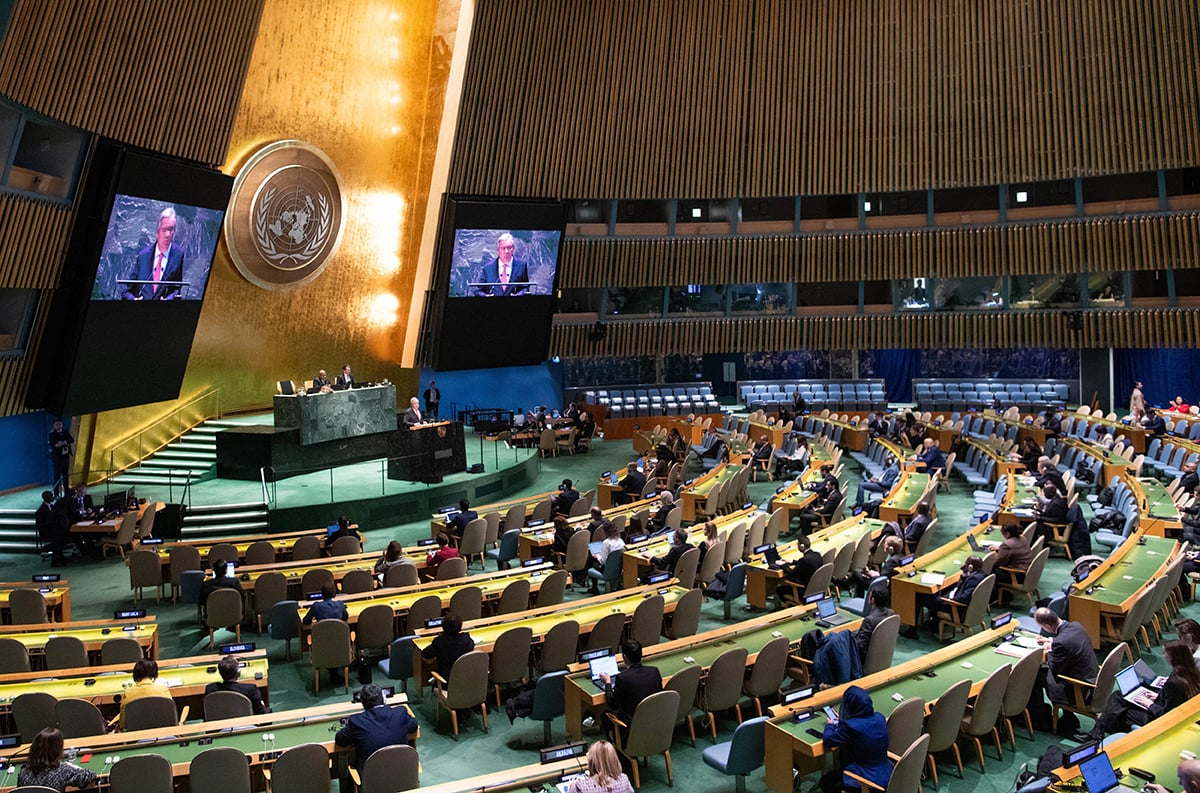
Unprecedented humanitarian disaster in the Gaza Strip
In addition to war, artillery shells and mines, people in the Gaza Strip are also facing an unprecedented humanitarian disaster. Electricity, water, food, medicine... are all in serious shortage, and diseases are breaking out and spreading everywhere.
As of February 20, 2024, the United Nations Office for the Coordination of Humanitarian Affairs (OCHA) said that up to 2.2 million of the 2.3 million population in the Gaza Strip are suffering from varying degrees of hunger, of which 378,000 are in a critical stage. Many people have to eat grass and animal feed to survive. More than 80% of the population in the Gaza Strip has been forced to leave their homes. The reason is that Gaza is completely blockaded by Israel. Currently, only two border crossings, Rafah and Abu Salem, on the Egyptian border are open, so the amount of relief goods brought into the Gaza Strip is very small. To meet the minimum needs of the people in the Gaza Strip, at least 500 trucks must be cleared every day, but currently only about 100 - 150 trucks are allowed to move in.
Humanitarian organizations are unable to provide basic needs for people in the Gaza Strip due to the Israeli shelling, which has made the security situation unstable. To date, more than 100 UN aid workers have been killed and the distribution of relief goods has been disrupted. The UN Secretary-General said that Israel is creating “huge obstacles” in the distribution of relief goods.
The prolonged escalation of hostilities has caused increasing losses for Israel, Hamas and Palestine, especially the people in the Gaza Strip. According to OCHA, to date, the number of Palestinians in the Gaza Strip who have died has exceeded 33,000, including 9,000 women and 13,000 children, and the number of injured people has reached more than 76,000. This statistic is still incomplete because thousands of victims are still lying under the rubble.
The once beautiful city of Gaza has been reduced to ruins with more than 100,000 buildings completely destroyed, 290,000 buildings severely damaged, 30 hospitals, 150 medical facilities and many schools bombarded and forced to temporarily suspend operations, the health and education system completely collapsed. The damage in the Gaza Strip is estimated at 18.5 billion USD.
Internal divisions within Israel, Israel-US relations are cracked
Around the world, protests involving millions of people have erupted in many countries supporting Palestine and condemning Israel's military campaign in the Gaza Strip.
In Israel, many massive protests took place in Tel Aviv and the capital Jerusalem with the participation of hundreds of thousands of people demanding that the government find every way to rescue the hostages being held in the Gaza Strip, and demanding that Israeli Prime Minister B. Netanyahu resign and hold early elections to form a new government.
There are many disagreements within the Israeli government, especially between the Emergency Government and the War Council. Recently, former Israeli Defense Minister Benny Gantz - a member of the Emergency Government formed by Israeli Prime Minister B. Netanyahu after the events of October 7, 2023, participated in protests in Tel Aviv to protest the government and attack the way Mr. B. Netanyahu handled the hostage issue in the Gaza Strip. Many opposition figures, including former Israeli Prime Ministers Ehud Barak, Ehud Olmert, Yair Lapid, former Israeli Defense Minister Avigdor Lieberman and many other senior officials, did not participate in Mr. B. Netanyahu's war government.
Some cracks also began to appear between Israel and the United States when US President Joe Biden warned Israeli Prime Minister B. Netanyahu that Israel was losing international support because of the “indiscriminate bombing” of the Gaza Strip and should change its government, which is dominated by far-right parties. This was US President J. Biden’s harshest criticism to date of Israeli Prime Minister B. Netanyahu’s handling of the war in the Gaza Strip.
On March 14, 2024, speaking before the US Senate, Senate Democratic Majority Leader Chuck Schumer, the highest-ranking Jewish American in the US administration, warned that Israeli Prime Minister B. Netanyahu's far-right coalition was preventing "important adjustments" needed in the fight against Hamas. He said that Israeli Prime Minister B. Netanyahu was an "obstacle" to peace, and many Israelis had lost faith in the government's vision and ability to manage after the events of October 7, 2023. Mr. C. Schumer affirmed that holding early elections was the only way to pave the way for a proper decision-making process about the future of Israel.
On April 6, 2024, former US House Speaker Nancy Pelosi and 37 congressmen signed a petition to US President J. Biden requesting to stop supplying weapons to Israel.
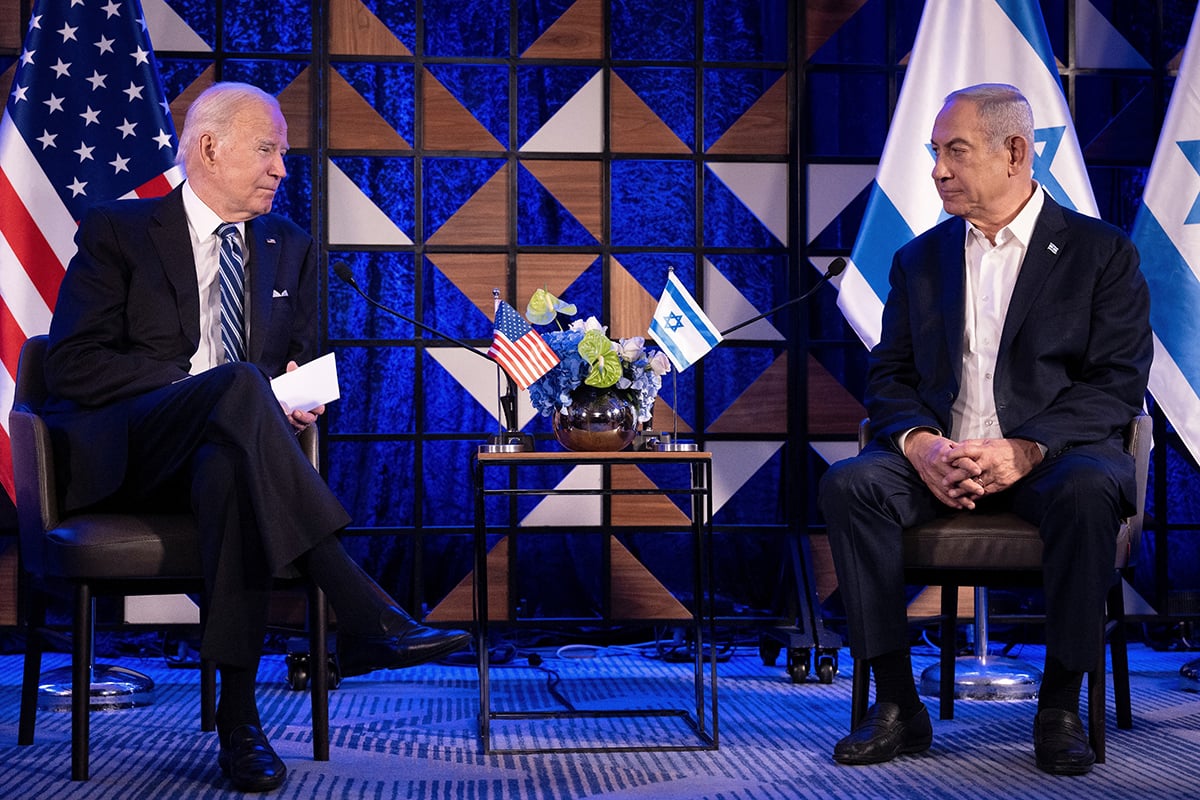
The risk of the war in the Gaza Strip spreading to the whole region
Israel's war in the Gaza Strip is drawing in the Middle East. As soon as the Israel-Hamas conflict broke out, the US stood completely on Israel's side, directly involved, through an emergency aid package of 14.2 billion USD, sending two aircraft carriers, the USS Gerald R. Ford and USS Dwight Eisenhower, along with support ships, and deploying 2,000 troops to the region.
To “share the fire” with Hamas, Islamic organizations in Lebanon, Iraq, Syria, Iran... have increased attacks on Israeli and American interests. The flames of large-scale war are spreading throughout the region, forcing Israel to deal with it on many fronts.
In Lebanon, Hezbollah has continued to fire rockets and drones into northern Israel. Israeli IDF forces responded by using artillery, tanks and helicopters to attack Hezbollah facilities in southern Lebanon, opening up and escalating the conflict on the Hezbollah-Israel front.
In Syria, the Israeli Air Force has repeatedly bombed Damascus and Aleppo airports in an attempt to cut off Hezbollah’s arms supply lines from Iran. At the same time, Israel has repeatedly launched missiles at Hezbollah and Iran’s Al-Quds Brigades bases in Syria. In response, suicide drones have been launched from Syria into Israeli territory.
In Iraq, in response to the US support for Israel in the war against Palestinians in the Gaza Strip, Hamas attacked US military bases in Iraq and Syria with missiles and drones and declared that it would continue to attack US targets in revenge for the massacres that Israel committed against Palestinian civilians in the Gaza Strip.
The Red Sea is also in turmoil. Yemen’s Houthi forces have repeatedly attacked Israeli cargo ships and US vessels in an attempt to pressure Israel to end the war in the Gaza Strip. International trade routes through the Red Sea have been disrupted and shipping costs have increased, adding to the crisis in the region. Houthi spokesman Yahya Saree has vowed to “burn the entire region” and declared that all US and British interests in the region would become legitimate targets for the Houthis. This is the biggest confrontation between the Houthis and the US in recent times.
Citing the reason of ensuring safety and freedom of navigation in the Red Sea, the US has established an international coalition with the participation of 12 countries, implementing the "Prosperity Guardian" campaign. The US sent submarines and aircraft carriers, France and the UK sent warships to the area. The US 5th Fleet naval base in Bahrain was put on combat readiness.
The Middle East flared up again when on April 1, 2024, Israel attacked the Iranian Consulate in Syria, killing seven military advisers, including three generals of the Islamic Revolutionary Guard Corps (IRGC). In response, on April 13, 2024, Iran launched a series of missiles and sent drones into Israeli territory. This was the first time Iran had carried out a direct attack on Israel, putting the Middle East on the brink of a full-scale war. In this situation, the international community continues to call on all parties to exercise restraint, avoid escalating tensions, make efforts to participate in humanitarian relief and play the role of a mediator in peace negotiations.
In the coming time, the conflict between Israel and Hamas is expected to continue to have new developments, in a more complicated direction, with direct confrontation between Israel on one side and Hamas and its allies on the other, affecting the regional situation more and more deeply. Therefore, ending the conflict in the Gaza Strip and returning detainees, expanding humanitarian relief corridors to help people in the Gaza Strip avoid disaster are urgent issues that need to be resolved now. Although it is difficult to reach an agreement to end the war comprehensively due to the large differences, experts believe that Israel and Hamas can reach a temporary ceasefire agreement in the short term. In addition, some experts also commented that a lasting and stable peace in the Middle East and Israel's security can only be achieved when the Israel-Palestine conflict is resolved on the basis of Israel withdrawing from all occupied Palestinian lands, establishing an independent and sovereign Palestinian State within the 1967 borders with East Jerusalem as its capital./.
Source: https://tapchicongsan.org.vn/web/guest/the-gioi-van-de-su-kien/-/2018/921602/cuoc-xung-dot-quan-su-tai-dai-gaza---nhung-he-luy-kho-luong.aspx














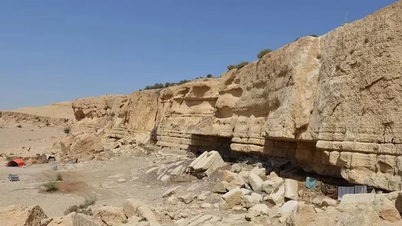

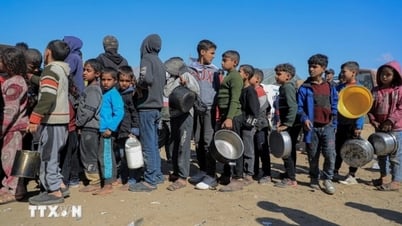
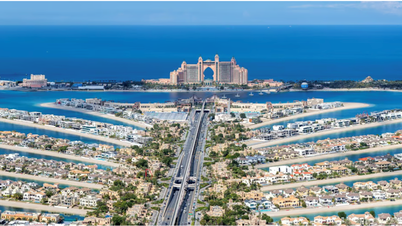







































































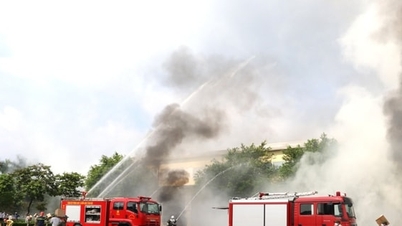














Comment (0)